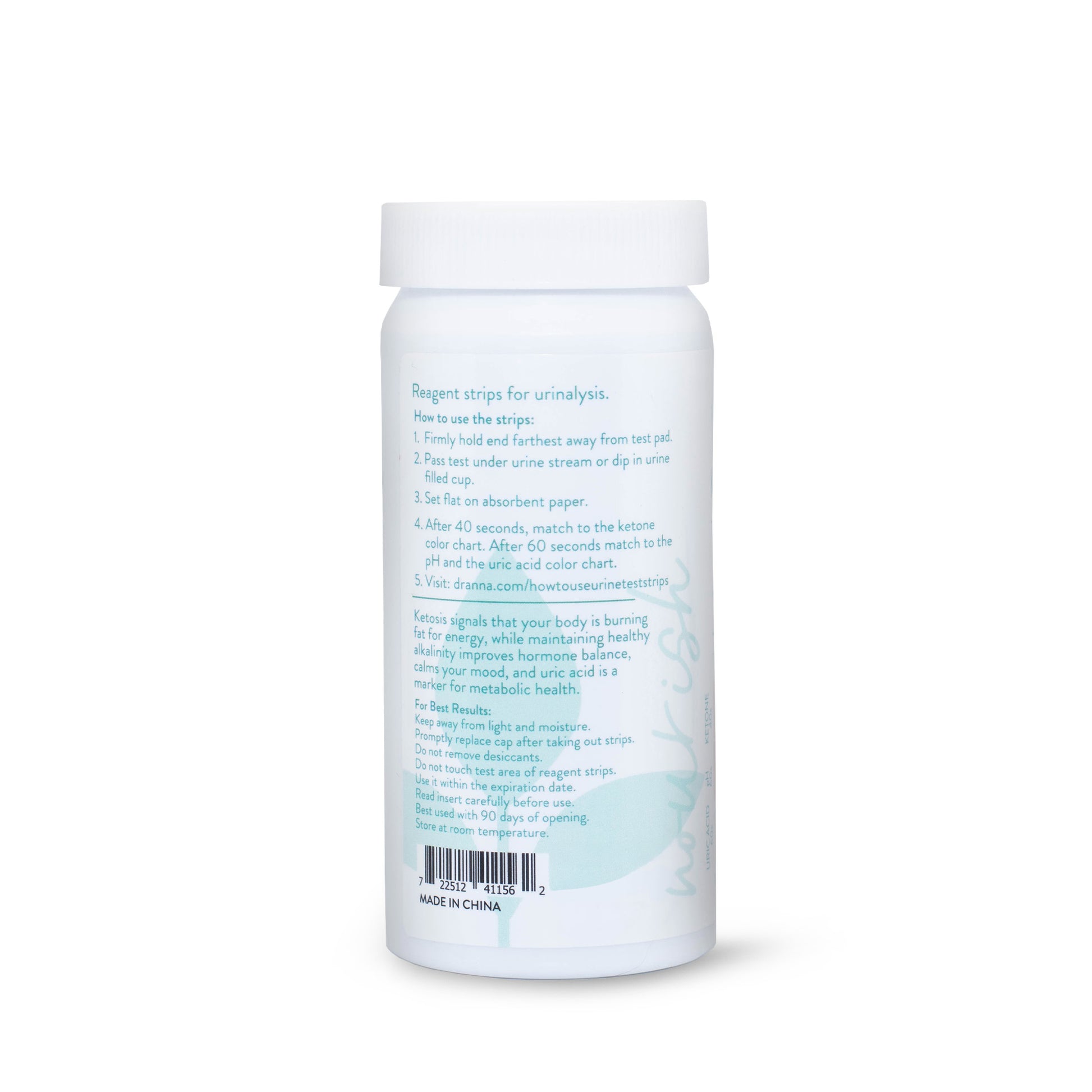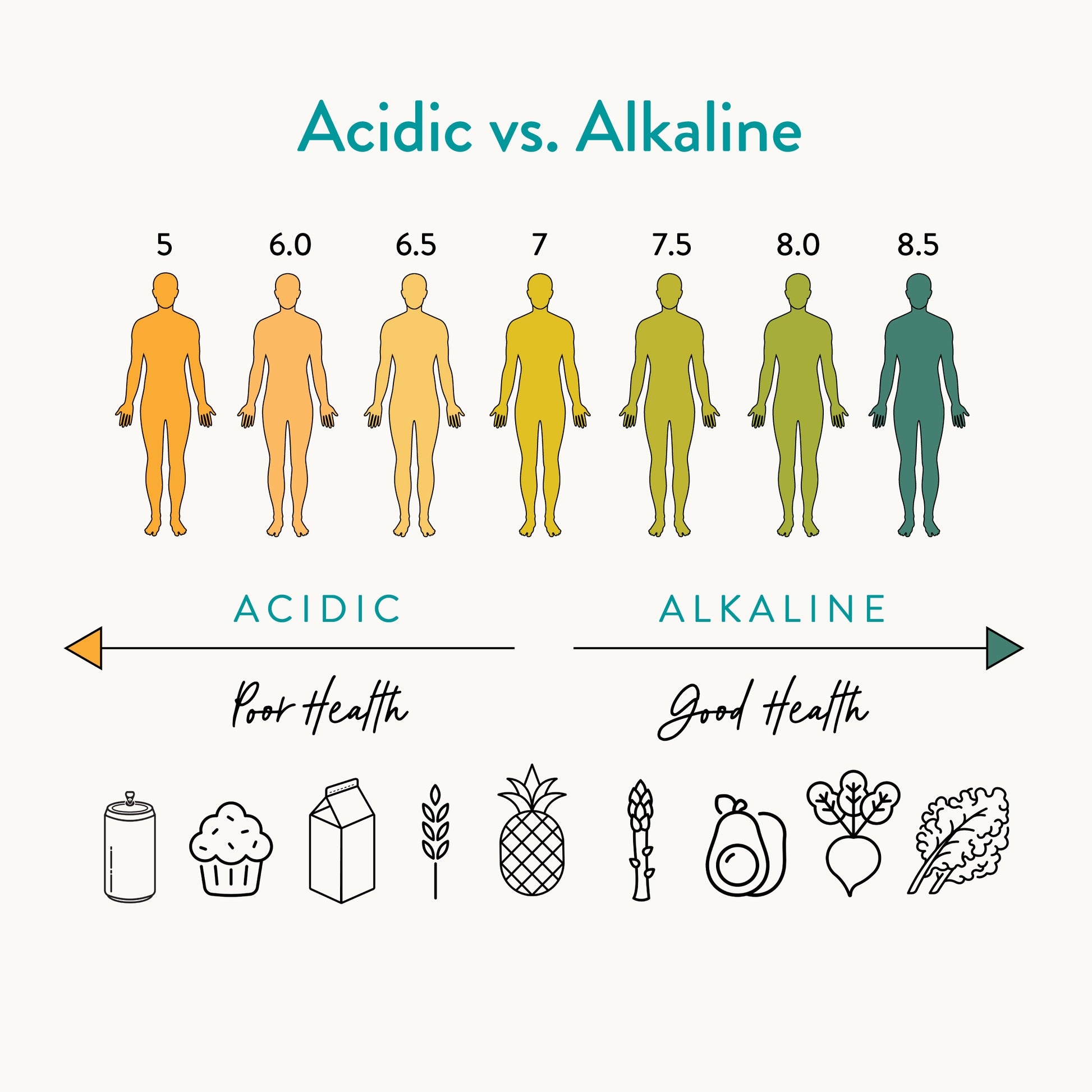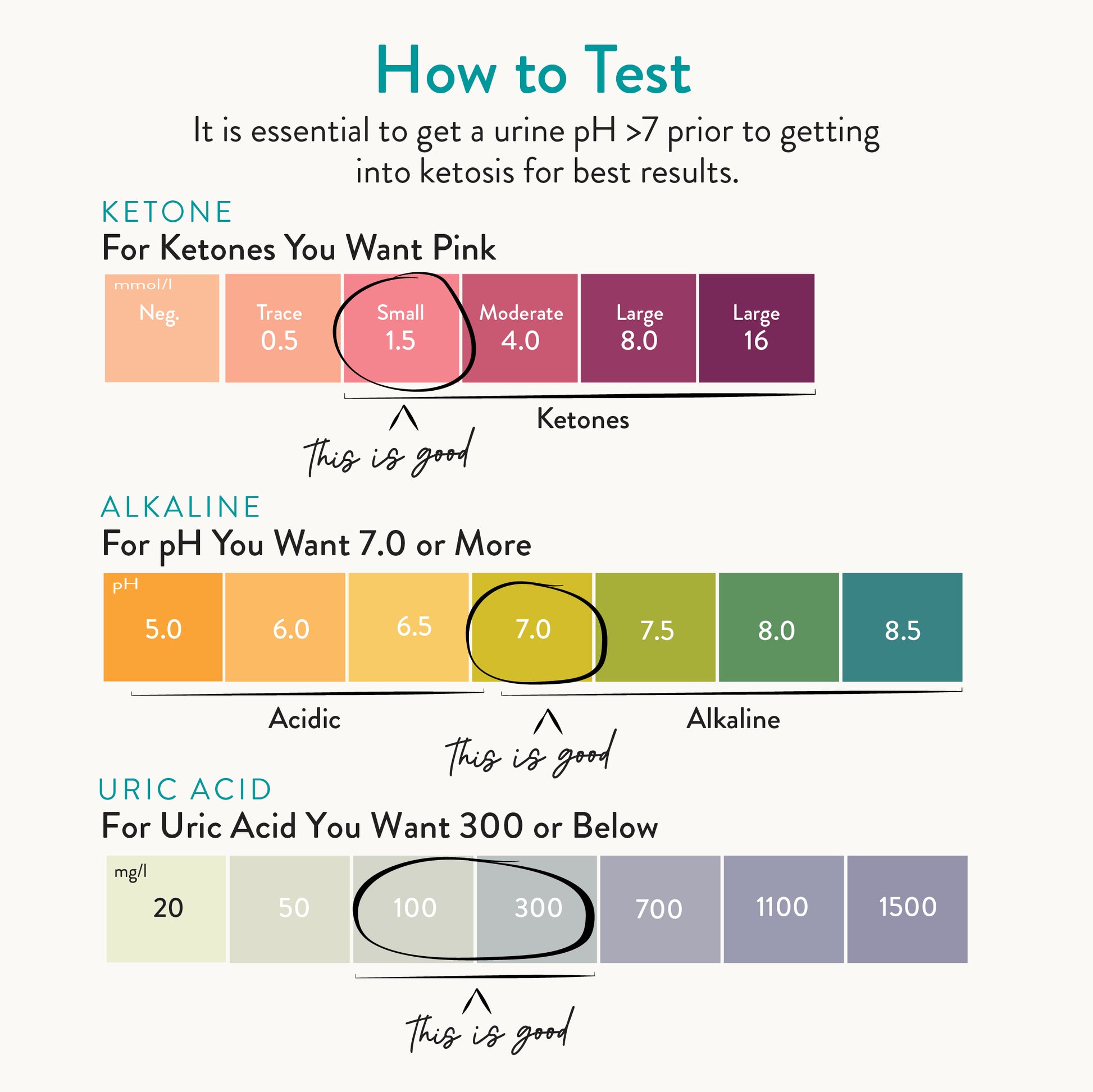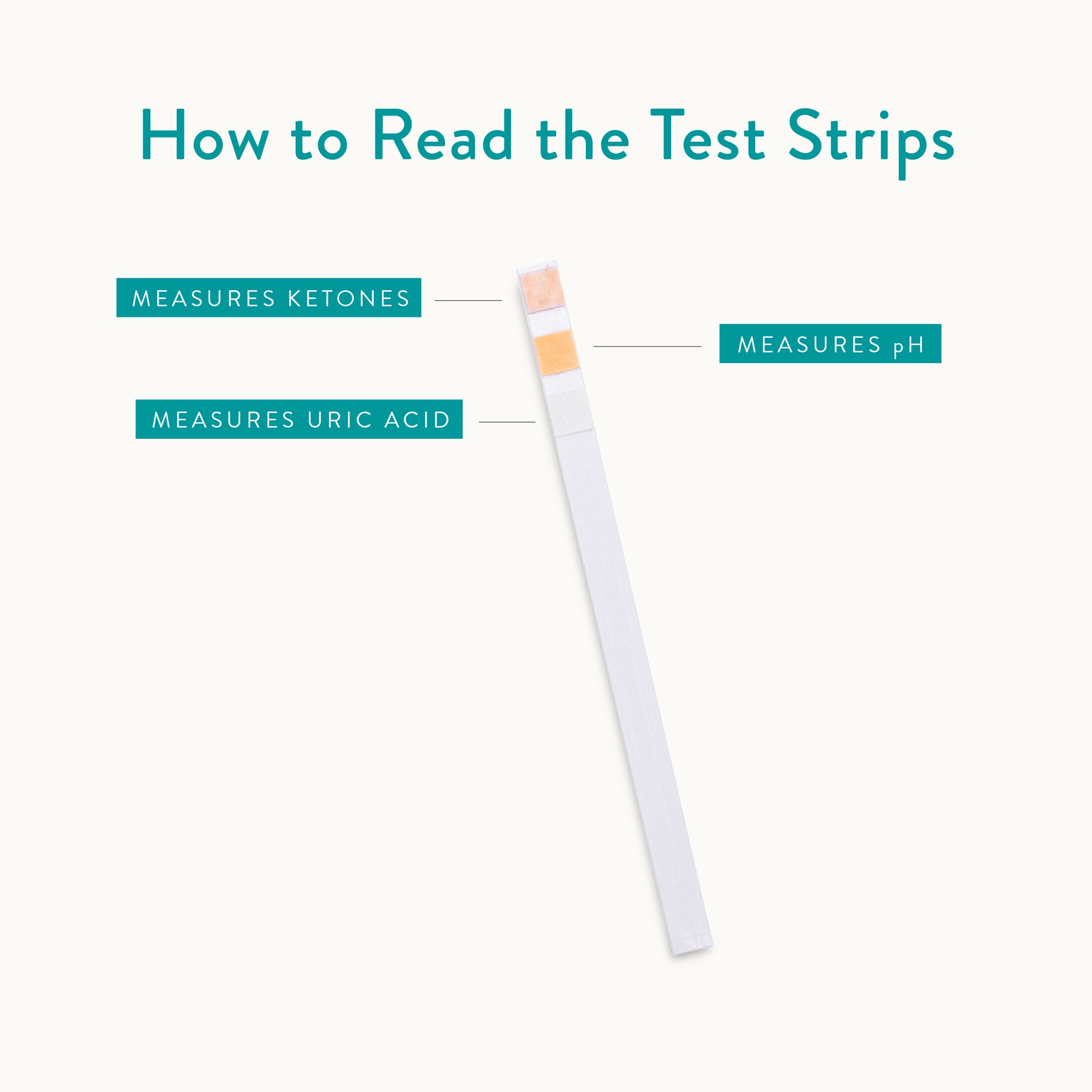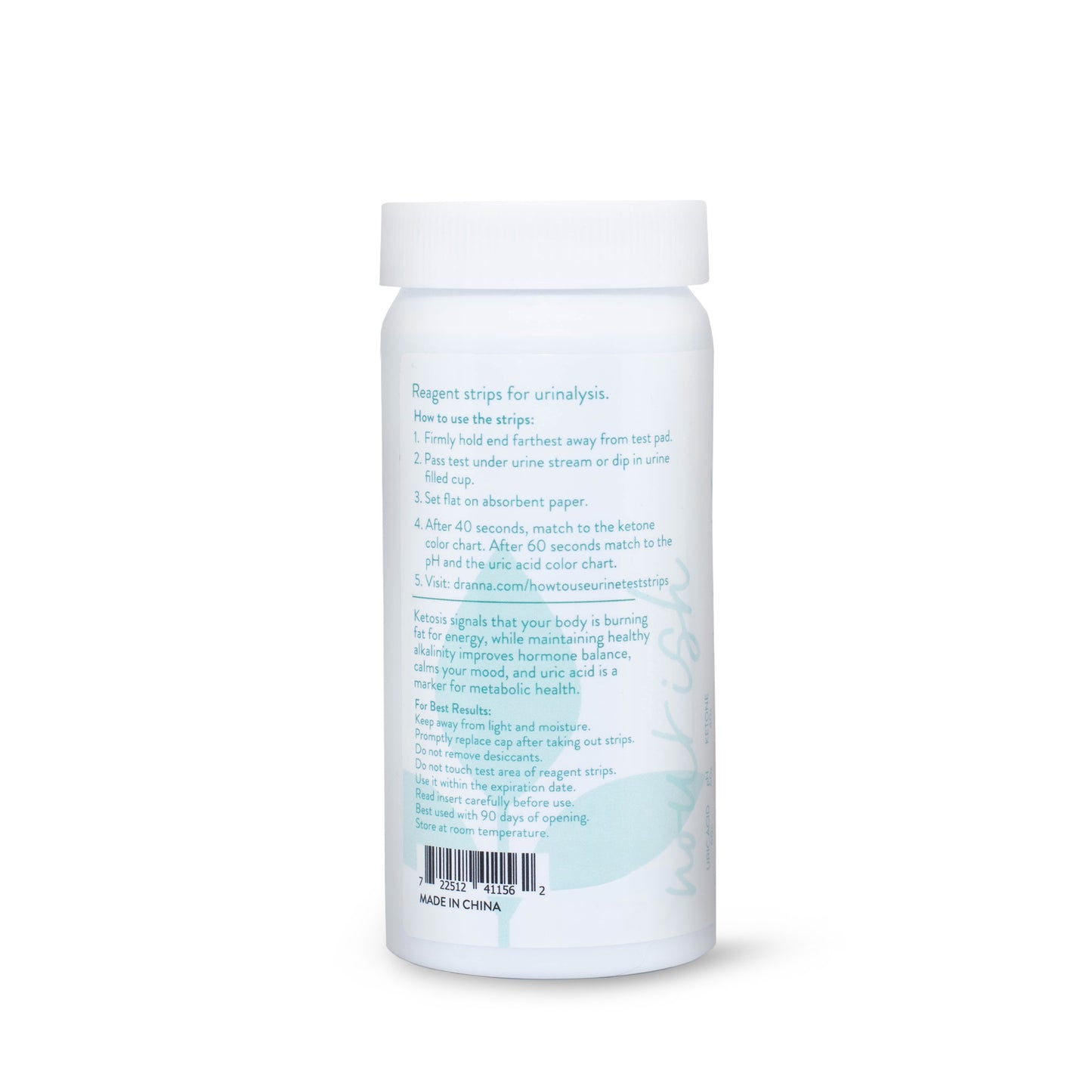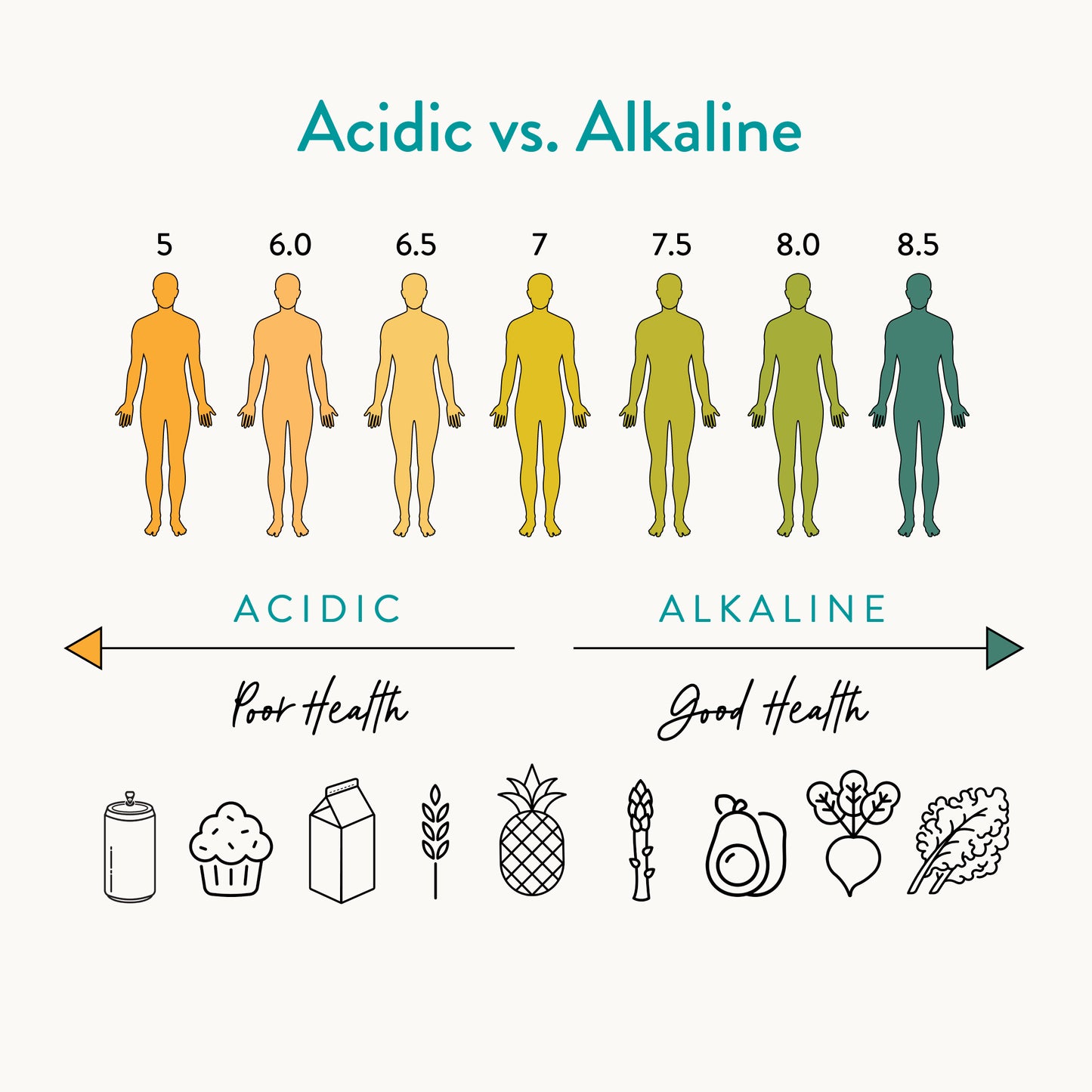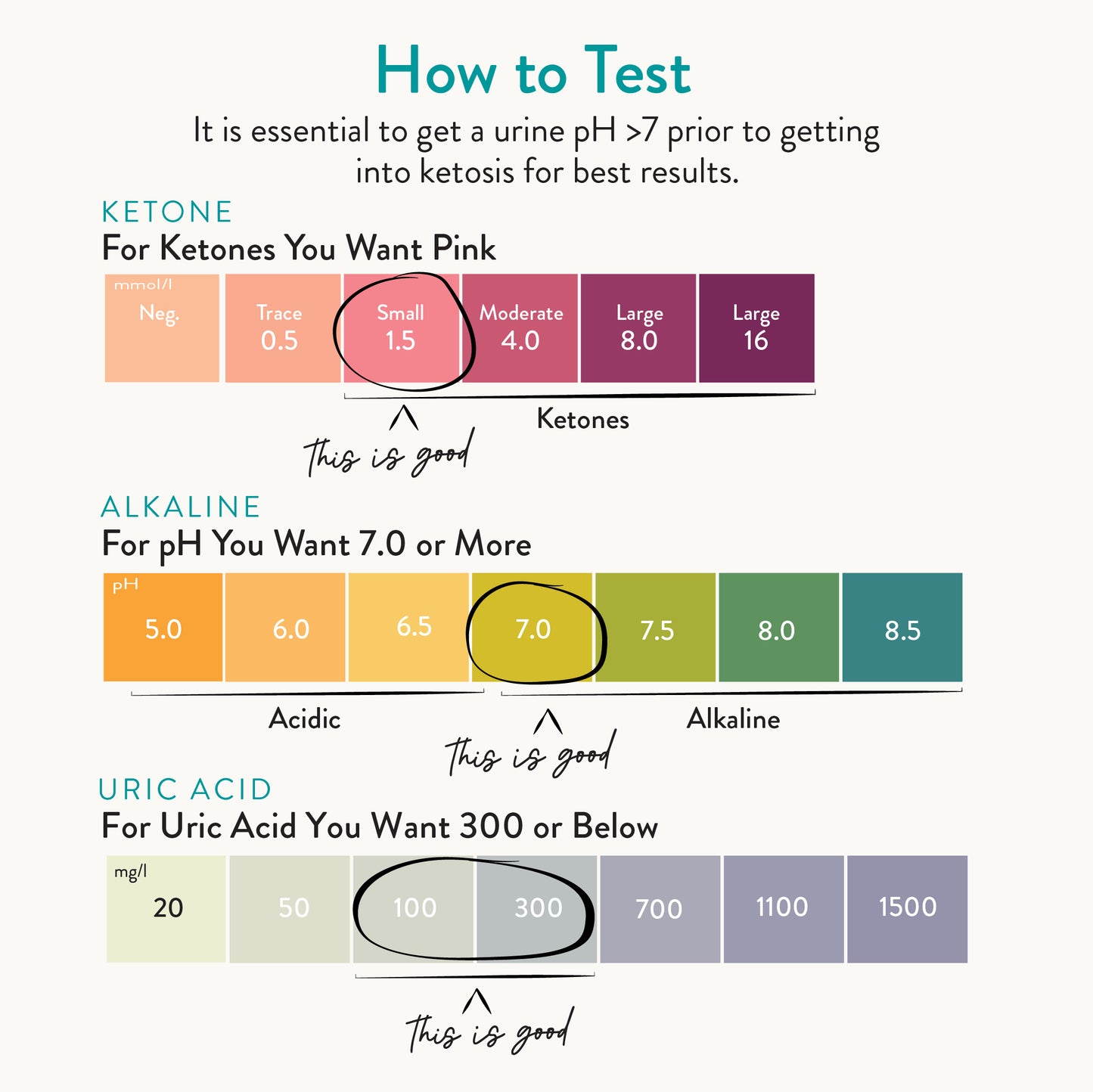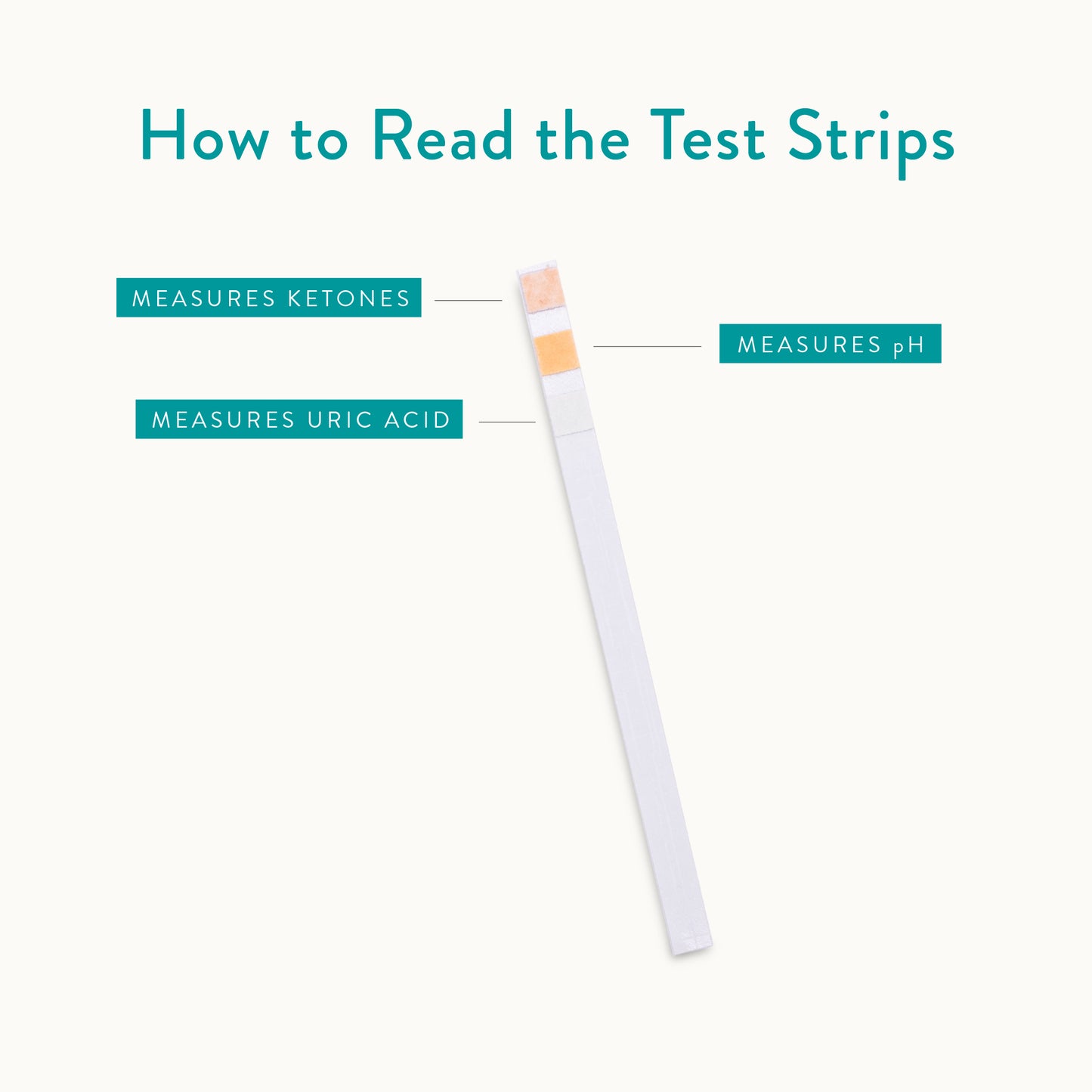What are ketones?
Fixed ketones are not normally found in the urine. They are by-products of fat metabolism. They can form when a person does not eat enough carbohydrates (for example, in cases of starvation or high-protein diets, such as ketogenic and paleo) or when a person's body cannot use carbohydrates properly. When carbohydrates are not available, the body metabolizes fat instead to get the energy it needs to keep functioning! Urine ketones can be an initial discerning tool to let you know you’re on the right track to fat loss.
What is Ketosis?
When you have a scarcity of carbohydrates, your body goes looking for other energy sources. After about 3 days without sufficient carbs, most of your glycogen stores will be depleted and your body will start burning fat and produce ketone bodies.
Why do I want Ketones?
The presence of ketones means your body is burning fat for fuel. Ketones are also a marker for improved brain health and better metabolism.
Why do I want to be alkaline?
This clues us into our cellular health. An alkaline diet helps improve hormone balance and supports stronger bones & less hot flashes!
Why check urine pH?
pH is a measurement of our acid-alkaline balance. The kidneys play an important role in maintaining the acid-alkaline balance of the body. Therefore, any condition that produces acids or bases in the body such as acidosis or alkalosis, or the ingestion of acidic or basic foods, can directly affect urine pH. Diet can be used to modify urine pH. A high-protein diet or consuming cranberries will make the urine more acidic. A vegetarian diet, and the ingestion of citrus fruits and other alkaline foods, like maca, will tend to make the urine more alkaline. pH in blood is very stable. PH in the urine can be a clue to discovery about our health. Stress can be a contributor to a low pH.
What do I do if my ketones and pH levels aren’t optimal?
Support your body and check out more information here.
What do I do if my uric acid levels aren’t optimal?
100 to 300 is the normal range for uric acid. We want to keep it on that lower side and when it's over 300 consistently, follow that up with a blood test of uric acid that any doctor can order.
This podcast episode with Dr. David Perlmutter as well as his book, Drop Acid, is a great resource for you.


